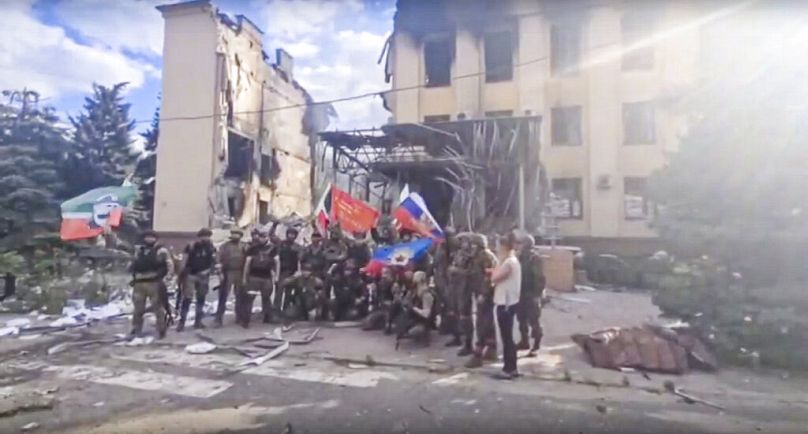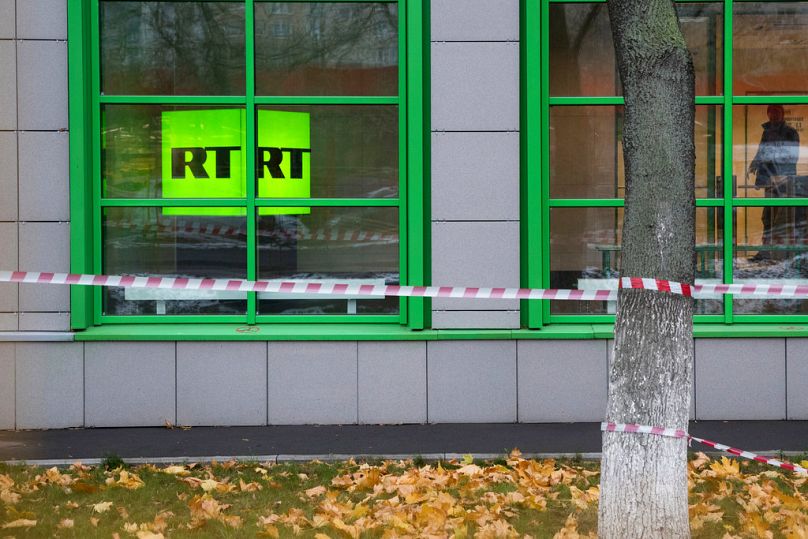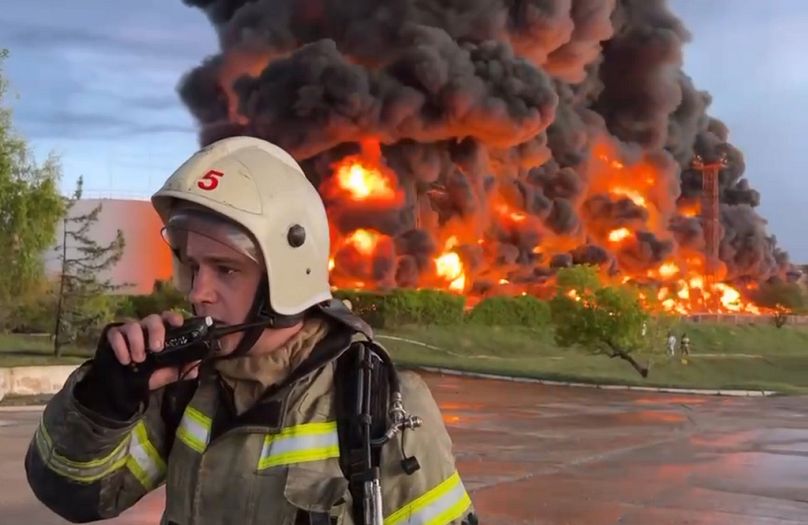Although Russian TV does help shape the official discourse of the rogue state gone terrorist, it is unclear whether it has any success with the audience in convincing it to believe the lies it peddles, Aleksandar Đokić writes.
When it comes to main mechanisms of disseminating government propaganda, the Soviet strongman Joseph Stalin notoriously had the radio.
 ADVERTISEMENT
ADVERTISEMENT
 ADVERTISEMENT
ADVERTISEMENT
In turn, Russia's President Vladimir Putin has heavily counted on the TV to brainwash his citizens.
There are, however, significant differences between the efficacy of these two methods.
First off, radio was quite novel in Stalin's times, while television is an old medium in Putin's era.
In other words, Soviet radio propaganda — from which Nazi Germany's Josepbh Goebbels also learned his trade — was cutting edge, state of the art.
It was fresh and it presented an unsurpassed way of communicating the totalitarian will of the state to the mostly illiterate and petrified Soviet masses.
In turn, Putin’s propaganda tools are aged, passé, and they’re losing the attention of the audience.
By focusing too much on TV, Putin failed to take full control of the internet
During the first half a year of the invasion, from winter 2022 to summer of the same year, Russia’s big three state TV channels — Channel One, Rossiya 1 and NTV — lost about a quarter of their audiences.
The most active parts of Russian society have moved to the social media platform and messenger Telegram to get their news.
Telegram has basically no censorship whatsoever, and it’s not banned in Russia, at least for now. Its creator, Pavel Durov, is, in essence, a libertarian like many internet moguls are these days.
He had a standoff with the Russian government a few years back, which ended with what one may call a compromise, allowing Durov to keep all his data servers inside the country and freely manage his platform.
This means that the Russian state can effectively monitor all the data and that the Telegram administration will comply with any searches.
The platform’s content is, on the other hand, almost completely unmoderated: Ukrainian media is present, together with Russian extremist mil-bloggers, as well as the Russian state-owned media like TASS.
Many Ukrainian officials also have their own Telegram channels, meaning that Telegram offers a window into information about the war that remains unfiltered and unspoilt by the Kremlin.
Unlike Stalin's Soviets, Putin's Russians have an alternative
Effectively, Telegram's widespread popularity contributed to the fact that Putin’s propaganda machine has lost the most important propaganda battle to lose — the battle of the Internet.
Losing this struggle means that Russian citizens can obtain uncensored data with ease, even if they can be theoretically monitored.
Defeat in this field also means that Russian state propaganda hasn’t been able to create powerful and popular Internet outlets of their own for its own citizens.
Traditional media outlets like RT are far more popular in alt-right and alt-left circles in the West than they are in Russia itself.
This is the second major difference to Stalin’s model of propaganda — the Soviet masses in the 1930s had no alternative to state propaganda nor the means to gain access to it.
And the reason why complete media isolation is impossible today is quite obvious.
As the Kremlin went out of its way to ban social networks like Facebook, Instagram and Twitter (LinkedIn was banned even before the invasion), it did not ban YouTube or Telegram because that would shut down its own propaganda as well.
Demonising the West made it more appealing
For years, Putin’s Russia tried and failed to create its own alternative social networks — basically its own section of the Internet — which the state bureaucracy could later simply disconnect from the global network, copying China’s example of the walled Internet.
Why? Because Russians, whatever their political stance or affiliation, act as if they are a part of the European civilisation — that is to say, they want to belong to the West.
Even in periods of history when Russian society was made to hate the West, at the same time, the West was the only constant upon which comparisons were made.
Inadvertently, demonising it made it into a standard to both compete against and aspire to.
If Russia created its own line of jeans, ordinary Russians would still crave the popular Western brands.
When local entrepreneurs presented their substitutes for the likes of Starbucks and McDonald's, Russians knew they were not getting an actual equivalent of the real deal. The same goes for any social network.
Russians do not want to isolate themselves in “Fortress Russia”. Instead, they want the window to Europe to stay open, and they want to be a part of it.
Lack of freedom to create means domestic products are a failure
The state was powerless to create its own copy of the West and its material wealth, including popular culture and entertainment.
The failure can be attributed to the wrong model of thinking or paradigm. The allure of the West comes from the freedom of the individual, which is free to create new content.
Free competition and many trials and errors usually result in a competitive, high-quality product down the line.
But the Russian way tends to be more authoritarian and centralised, where orders are given from the top: “I want it to look like a Western product, only better and with a certain Russian touch it”.
Yet, that's not how true society-changing innovation works. What usually happens is that, after many repeated attempts of carbon copying marred by corruption, an inferior product to the Western alternative is created.
And it is this lack of liberty that inevitably makes any Russian state product aimed at attracting the masses a failure.
This goes for the media, films, music, video games, clothes, fast food, automobiles and user technology alike.
The failure of the Russian state is the best show Putin's propaganda machine ever made
Many Russia watchers from the West are now fixated on the few state-media talk shows in which all sorts of aggressive — and, let’s be honest, outrageous — messaging can be heard.
They then assume that the population fully absorbs this messaging in the way it has been presented.
While it must be said that these messages do help shape the official discourse of the state — a state which has gone rogue, and its essentially terrorist discourse reflects this reality — it is unclear whether it has any success with the audience in convincing it to believe the lies it peddles.
What is obvious, however, is that instead of becoming mindless drones easily made to do what the Kremlin wants, the Russian masses have been turned stuporously apathetic and paralysed instead.
There is no war fervour: the state is left on its own to win or to fail.
Thus, the only show for ordinary Russians to observe playing out is watching the state gradually collapse because of the war of choice it started, all after a fledgling democracy was stifled decades ago.
Aleksandar Đokić is a Serbian political scientist and analyst with bylines in Novaya Gazeta. He was formerly a lecturer at RUDN University in Moscow.
At Euronews, we believe all views matter. Contact us at view@euronews.com to send pitches or submissions and be part of the conversation.















